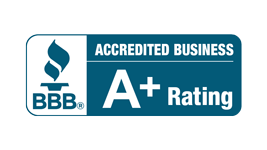County Tax Foreclosure
If you don’t pay your real estate taxes the County has several options to collect the money, including foreclosing on your home. Just like when you can’t pay your mortgage, and the bank forecloses on your home, the county can do the same thing to you for unpaid real estate taxes. And, there is a tremendous increase in the number of County Tax Foreclosures being filed as a result of COVID 19.
People hurt by the pandemic can’t keep up on all their debts, and many end up losing their home as a result. This is preventable in many cases. Bankruptcy could wipe out all your other debts, and free up enough money to pay the back taxes over 5 years. Often this permits you to save your home.
Most people who have mortgages on their homes have what are called escrowed loans. Part of the payment you make each month goes into an account to pay your real estate taxes as they come due twice a year.
If you have an escrowed loan and don’t make your monthly payments, and your taxes get behind, the county can foreclose to collect the taxes even if your mortgage payments are in a forbearance agreement, and not technically due.
Taxes are a lien on your home. State law gives the tax lien priority over even your mortgage lien! Just like when you get behind on your mortgage the bank can foreclose on your home, so too can the county, which holds a tax lien on your home, foreclose when the taxes get behind.

Ohio County Tax Foreclosure against your home
Ohio law permits the county prosecuting attorney to foreclose against your home. The county will sue you for foreclosure in the Common Pleas Court in the county where your home is located. Ohio Rev. Code § 5721.18. This foreclosure is the same as when the bank forecloses for failure to pay mortgage payments.
You will receive a lawsuit against you, by certified mail (or by FedEx or the sheriff may serve you). You have 28 days to file an answer. Your mortgage company will also be sued, if you have a mortgage on the property. You can be sued by the county prosecutor for tax foreclosure on your home even in you are current in your mortgage payments, if the taxes are not paid on time.
Once the court has granted judgment in favor of the county prosecutor on the tax foreclosure on your home, the next step in the process is to order your home sold. This sale will be published in the newspaper at least weekly for 3 weeks, and then the sale will be scheduled by the county sheriff, who normally holds sales one to two times per month.
If you are looking for information about the sale of your home, be aware that there are two websites to monitor. The first is the Common Pleas court website. This is where you’ll find information about the foreclosure lawsuit.
The other website to monitor is the county sheriff’s sale website. Once the court orders the sale, there will be no further activity on the court website until after the sheriff has conducted the sale, and reports back to the court the results of the sale, who bought the property and for how much.
Once the sale is complete, the Court will then enter a confirmation order for the sale and order distribution of the funds, first to the court costs, and next to the county for the real estate taxes. Then, if there is a mortgage or more than one mortgage, sale proceeds are distributed until there is no money left.
Whatever debt on the home that is not paid from the proceeds of the sale, you will continue to owe.
Right of Redemption after Foreclosure in Ohio
It is possible to save your home after it is sold at a sheriff’s sale but you have to act quickly and have the funds to pay all debts. You may avoid the loss of your home, or redeem the home after the sale, but only up to the time the court orders that the sale is confirmed. (Ohio Rev. Code § 2329.33.)
By Ohio Law, the sheriff can take up to two months to report the sale to the court. Once this is done, the court will enter on order to confirm the sale within 30 days.
These times will vary from court to court and won’t be the same even in the same court, so you have to act fast. The process to redeem the house is complex and you should consult an attorney to get help with this process.
How Bankruptcy can stop Tax Foreclosure in Ohio
Bankruptcy can stop tax foreclosure in Ohio. Just like bankruptcy is used to stop mortgage foreclosures, and give you up to 5 years to catch up missed payments, chapter 13 bankruptcy can also be used the same way to stop a tax foreclosure in Ohio.
At any time prior to the actual sheriff’s sale, you can file a chapter 13 bankruptcy to stop the sale. Once the bankruptcy is filed, the automatic stay kicks in to stop all collection actions against you, including tax foreclosure sales in Ohio. Then you have up to 5 years to catch up your missed tax payments. This is much longer than you will be able to get from the county prosecutor. But, there’s more…
With chapter 13 bankruptcy you not only get 5 years to catch up missed tax payments, you can, at the same time, wipe out all or most of your other debts. You can even lower your car payments.
The savings you can get by filing a chapter 13 bankruptcy can often free up enough money to actually save your home when a non-bankruptcy payment plan would be unaffordable.
Many people are being slammed with tax foreclosures in Ohio filed by local county governments who desperately need money. They are no longer selling tax liens, a process which gives you an extra year to catch up your missed tax payments. The counties are going directly after your home. Since they get paid first, they know that they’ll get their money, either from you or from the sale of your home. Bankruptcy can stop this, however.
You can save your home from tax foreclosure in Ohio with chapter 13 bankruptcy, wipe out your other debts, and get an affordable payment. You can save your home and cars, and wipe out all or most of your other unsecured debt at the same time.
Foreclosure Services
Legal Services
Quick Reference
Get Your Free Consultation And Review All Your Options
Start your financial recovery now with a free consultation after completing our online evaluation form.
Useful Calculators
Here are two helpful calculators for managing your debt repayments and Chapter 13 commitments.


